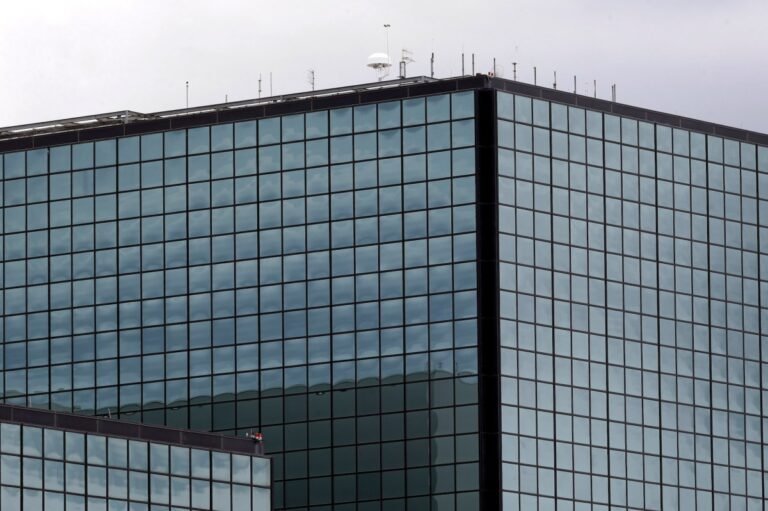
Gorilla, a Belgian company that serves the energy sector with real-time data and analytics for pricing and forecasting, has raised €23 million ($25 million) in a Series B round led by U.S. venture capital firm Headline.
Founded in 2018, Antwerp-based Gorilla works with energy providers across Europe, the U.S. and Australia, including British Gas’ parent Centrica, Shell Energy, and Atlanta, Georgia-based Gas South.
Throw into the mix geopolitical factors such as the Russia-Ukraine conflict, ever-evolving regulations, increasingly distributed energy sources across fossil and renewables, and the increasing use of connected technology, and we now have fertile ground for data-focused energy startups to flourish.
“No one knows what the energy sector will look like 10 years from now,” Gorilla’s co-founder and CEO, Ruben Van den Bossche, said in a statement.
Other participants in the round include the startup’s existing investors Beringea and Belgian private equity firm, PMV.

The U.S. National Security Agency has confirmed that hackers exploiting flaws in Ivanti’s widely used enterprise VPN appliance have targeted organizations across the U.S. defense sector.
Confirmation that the NSA is tracking these cyberattacks comes days after Mandiant reported that suspected Chinese espionage hackers have made “mass attempts” to exploit multiple vulnerabilities impacting Ivanti Connect Secure, the popular remote access VPN software used by thousands of corporations and large organizations worldwide.
Mandiant said earlier this week that the China-backed hackers tracked as a threat group it calls UNC5325 had targeted organizations across a variety of industries.
This includes the U.S. defense industrial base sector, a worldwide network of thousands of private sector organizations that provide equipment and services to the U.S. military, Mandiant said, citing earlier findings from security firm Volexity.
Akamai said in an analysis published last week that hackers are launching approximately 250,000 exploitation attempts each day and have targeted more than 1,000 customers.

India has updated official rules in the space sector to attract global investors and companies, after opening it up to private players four years ago.
The new foreign direct investment (FDI) policy raises limits on foreign investment, potentially spurring renewed interest in the South Asian space community.
Private and public actors in India have been taking measures to increase participation in the country’s space sector.
India has around 190 space tech startups, offering solutions including launch vehicles, space situational awareness and hyperspectral imagery.
Investments in Indian space startups reached over $124 million last year, per government data.

Brex might not be having a good couple of quarters, but there’s sufficient positive news from the world of fintech to offset all the negativity around the sector.
So, yeah, while there has been a stark lack of fintech companies going public recently, capital is flowing into the sector because venture investors are still cautiously optimistic about it.
We can answer that question relatively easily today thanks to a new list compiled by GGV US that highlights 50 fintech startups venture capitalists think are hot stuff.
We also spoke to GGV managing partner Hans Tung about what he’s seeing in the sector today.
Why does fintech look like it’s stuck in first gear today?

Brex might not be having a good couple of quarters, but there’s sufficient positive news from the world of fintech to offset all the negativity around the sector.
So, yeah, while there has been a stark lack of fintech companies going public recently, capital is flowing into the sector because venture investors are still cautiously optimistic about it.
We can answer that question relatively easily today thanks to a new list compiled by GGV US that highlights 50 fintech startups venture capitalists think are hot stuff.
We also spoke to GGV managing partner Hans Tung about what he’s seeing in the sector today.
Why does fintech look like it’s stuck in first gear today?

Brex might not be having a good couple of quarters, but there’s sufficient positive news from the world of fintech to offset all the negativity around the sector.
So, yeah, while there has been a stark lack of fintech companies going public recently, capital is flowing into the sector because venture investors are still cautiously optimistic about it.
We can answer that question relatively easily today thanks to a new list compiled by GGV US that highlights 50 fintech startups venture capitalists think are hot stuff.
We also spoke to GGV managing partner Hans Tung, about what he’s seeing in the sector today.
Why does fintech look like it’s stuck in first gear today?

But because of the country’s naturally dry and biodiverse climate, it’s particularly vulnerable to extreme weather events that have been exacerbated by climate change.
Australia has experienced its fair share of a climate catastrophes, which has only fueled its climate tech startups into action.
The hype for climate tech in Australia is real, as long as it can be sustained.
Local VCs are most excited about the sector this year, with climate and cleantech dominating in funding and deal count in Q3 2023.
In 2022, climate tech in Australia raised $553 million in capital, compared to $338 million in 2021, according to a report from Climate Salad, a community of Australian climate tech stakeholders.

The bill also mandates biometric verification for subscribers and restricts the number of SIM cards each subscriber uses to limit fraud.
The legacy of the old scammers in the telecom sector will be left behind, and arrangements will be made through this bill to make the telecom sector a sunrise sector,” Ashwini Vaishnaw, the Indian telecom minister, said while introducing the bill in the parliament.
Interestingly, the telecom bill excludes the term “OTT,” available in its initial draft last year, indicating regulations for over-the-top (OTT) messaging apps such as WhatsApp, Signal, and Telegram.
“The bill is regressive as it enhances the government’s colonial-era powers to intercept communications and shut down the internet.
It undermines end-to-end encryption, which is crucial for privacy,” said Namrata Maheshwari, Asia Pacific Policy Counsel at Access Now, in a prepared statement.

Despite a challenging economic period in 2022, this year’s investment into the space tech sector has continued to show signs of recovery.
Space tech has showcased a remarkable resilience amid macroeconomic uncertainty, bucking trends in the broader venture capital tech market.
Approximately $4.8 billion was invested into the space tech industry by the end of Q3, with growth-stage investment activity increasing.
These DoD contracts will stimulate a cascading effect throughout the broader space tech market.
This surge is expected to be catalyzed by strategic initiatives from respective governments, underscoring a global expansion and diversification of venture capital interest and commitment in the space tech sector.

The trading volume at top Indian crypto exchange WazirX fell to $1 billion in 2023 as the platform faced intensifying regulatory pressure in its home market alongside a broader slump for digital asset prices — and equities — globally.
WazirX, which has had a dispute with Binance over the Indian firm’s ownership, put a positive gloss on the latest figures, touting the $1 billion trading tally in a public statement Tuesday.
The 97% plunge in trading volume comes as WazirX faces mounting regulatory pressures from Indian authorities that have left the country’s once-burgeoning crypto sector fighting for survival.
India began taxing virtual currencies last year, levying a 30% tax on the gains and a 1% deduction on each crypto transaction.
India’s intensifying regulatory crackdown on cryptocurrencies has cast a chill over local investors once eager to back the country’s crypto startups.













